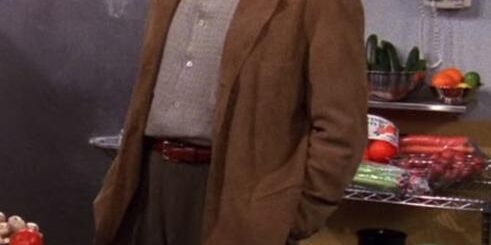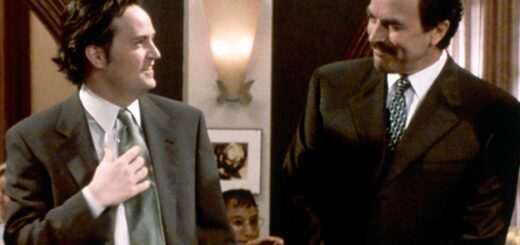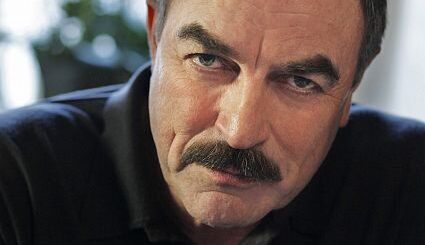“Blue Bloods Season 14 Midseason Premiere: Tom Selleck Takes the Lead in a Pivotal Episode”
Blue Bloods Season 14 Midseason Premiere Review: Tom Selleck Leads the Final Charge
Just as Frank Reagan commands the Reagan family, Tom Selleck powerfully anchors the return of Blue Bloods. The midseason premiere, Season 14, Episode 11, titled “Life Sentence,” marks the beginning of the long-running CBS drama’s concluding episodes. The script intertwines the entire family in a single case, but the subplot featuring Selleck’s character, Frank, alongside returning guest star Stacy Keach, stands out brilliantly.
The title “Life Sentence” reflects Frank’s unexpected encounter with Archbishop Kevin Kearns, who seeks his help on a murder case. Kearns aims to assist the suspect in avoiding the death penalty, but Frank’s perspective diverges sharply. Meanwhile, Erin Reagan faces an accusation of jury tampering related to a gang leader, adding another layer of complexity. While each storyline offers something unique, it’s the dynamic between Selleck and Keach that truly reignites Blue Bloods with quiet intensity.
A Notable Reunion: Tom Selleck and Stacy Keach
After 14 seasons, Blue Bloods boasts an impressive roster of guest stars, and “Life Sentence” features the return of several familiar faces. Central to the episode is Kevin Kearns, played by Mike Hammer star Stacy Keach. Over the years, Keach has made multiple appearances, and this episode showcases one of his finest. Kearns informs Frank about a murder suspect, David Benson, who wishes to surrender to the NYPD, motivated by self-preservation to avoid a harsher fate in Ohio, where he faces the death penalty. Kearns hopes Frank can intervene, but Frank is resolute in his belief that he cannot help a murderer.
The episode delves into the contentious issue of the death penalty through conversations between Frank, Kearns, and Erin, who shares her father’s opposition to it. Neither character compromises their stance, but the focus shifts to the strain it places on Frank and Kearns’ friendship. As tensions escalate, Kearns expresses disappointment, revealing the complexity of their relationship. Both Keach and Selleck, seasoned actors, elevate the emotional stakes as their characters navigate this difficult terrain.
In a powerful moment, Erin challenges Frank, asking, “What is the cost to you if you turn your back on a friend?” This exchange encapsulates the episode’s themes of loyalty and integrity. Selleck’s performance carries an undercurrent of frustration regarding the show’s impending cancellation, infusing Frank with palpable conviction as he navigates his moral dilemmas. Ultimately, Frank finds a middle ground by negotiating life sentences for Benson, acknowledging the respect that underpins his relationship with Kearns.
Erin Faces Accusations in a High-Stakes Drama
The episode’s primary plot revolves around Erin, who faces false allegations of jury tampering in her case against gang leader Carlos Ramirez. While the claims seem implausible, the unfolding drama raises questions about integrity and justice. Erin enlists her ex-husband Jack Boyle, played by Peter Hermann, to defend her. Their reunion adds a touch of familiarity, particularly as they navigate the courtroom tensions with their shared history.
Despite the courtroom theatrics, Mazar’s portrayal of the opposing attorney feels one-dimensional. The episode tries to develop her character during a family dinner, but it ultimately falls flat. Nonetheless, Hermann’s return provides a heartwarming connection, as Jack reassures Erin, reminding her that “You are not defined by your job.”
This subplot, alongside Frank and Kearns’ story, underscores the Reagan family’s influence within the city. Kearns approaches Frank because of the family’s power, which enables him to sway officials on Benson’s behalf. When Mazar’s character dismisses the Reagans, Erin retorts, emphasizing their integrity. This dynamic shifts the narrative to suggest the family’s dominance rather than their usual connection to the city.
While the episode leaves some unresolved threads, particularly concerning the juror’s backstory, it effectively reinforces Blue Bloods‘ central themes of family and justice. The interplay between personal dilemmas and familial bonds remains at the heart of the show, setting the stage for an intriguing conclusion to the series.


